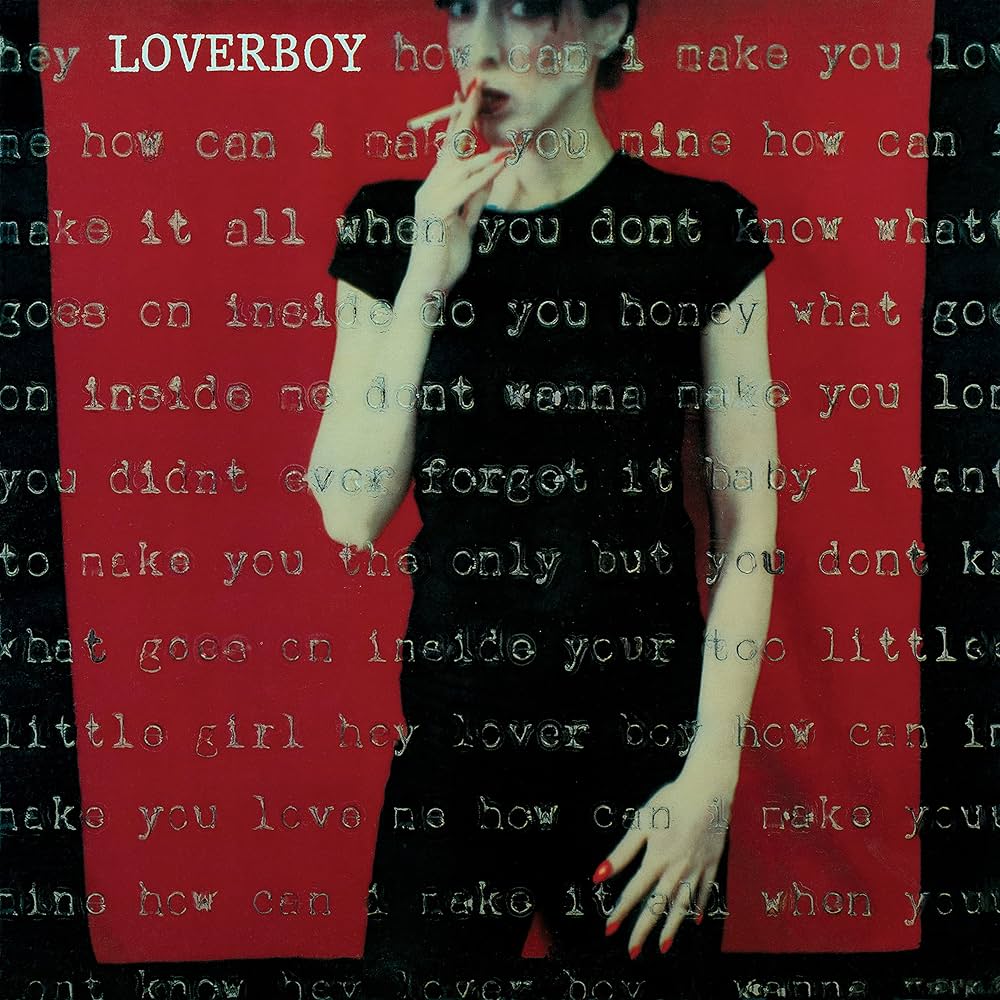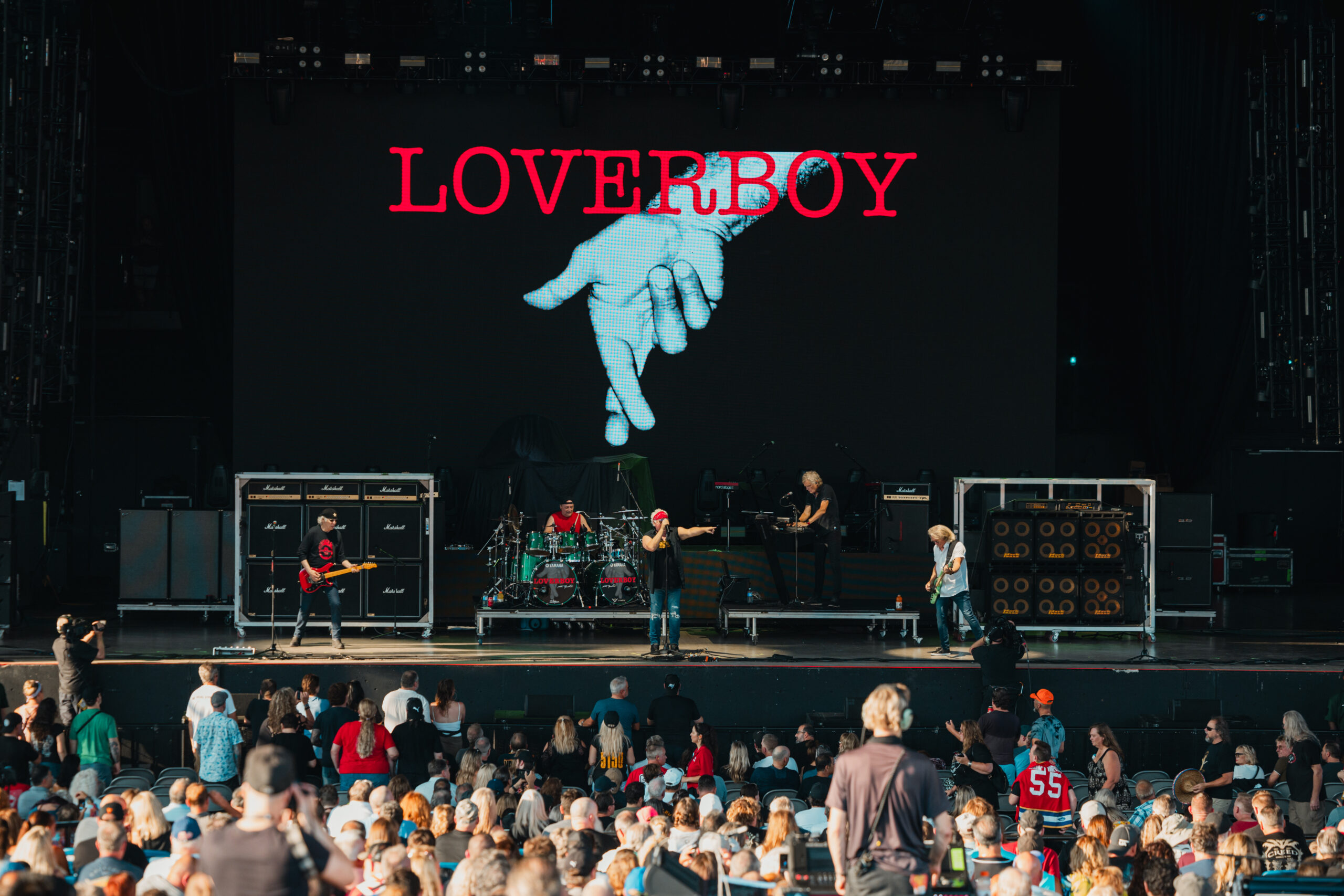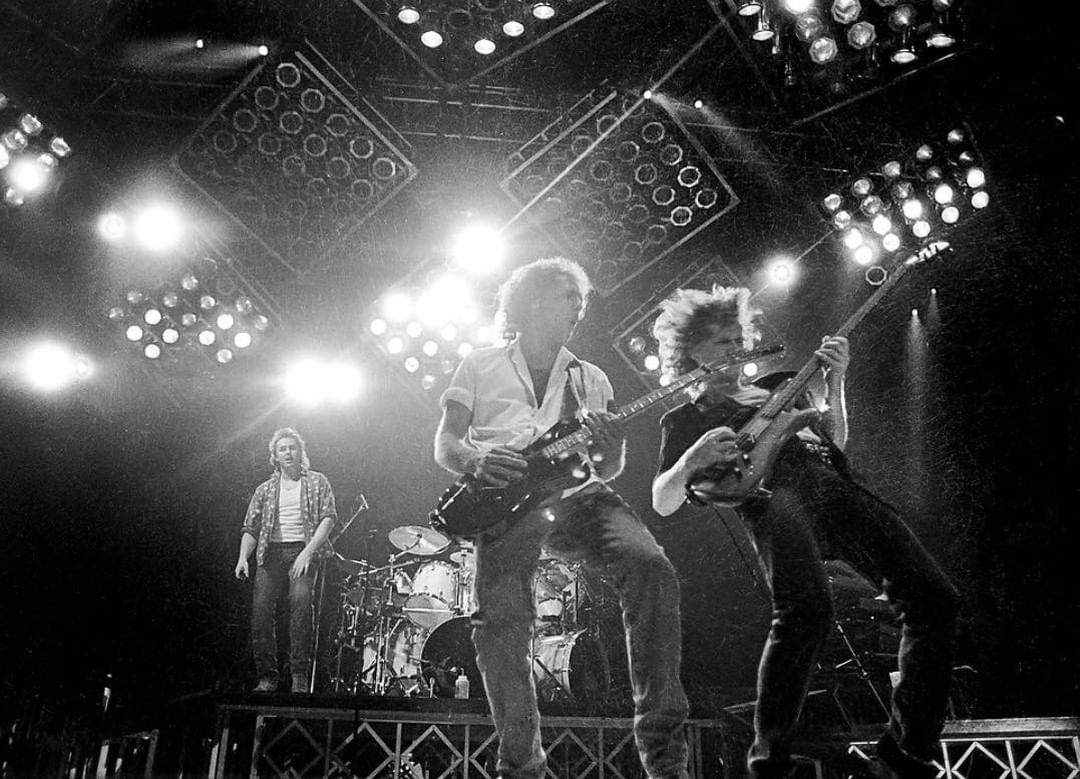It takes a hell of a lot of chutzpah to watch the top rock acts of the day perform and then announce, “I could do that.”
According to Loverboy guitarist Paul Dean, that was precisely the reaction he and bandmate Mike Reno had when their manager took them to Los Angeles in 1979 for a two-day rock-music festival featuring the likes of Aerosmith, Ted Nugent, and AC/DC.
Not that the fledgling Loverboy seemed likely to join their rarefied ranks any time soon. Having already tasted some success as a member of Streetheart, the Vancouver-born Dean connected with singer Mike Reno and keyboardist Doug Johnson while living in Calgary. The trio moved to the West Coast, bringing with them a stack of songs and big-league ambitions. With drummer Matt Frenette (also formerly of Streetheart) and bassist Scott Smith rounding out the lineup, the band was complete—and itching to make a record.
“We auditioned for a bunch of labels, some of the U.S. labels,” Dean says, calling from a tour stop in Salt Lake City. “They turned us down. One guy at Capitol Records said, ‘There’s no attitude here, sorry.’ But Mike and I went down to L.A. with our late, great manager Lou Blair, a great friend of ours. We went to a big concert in the Coliseum.”
At that show—the CaliFFornia World Music Festival, which took over the Los Angeles Memorial Coliseum on April 7 and 8, 1979—Dean and Reno found their confidence renewed.
“All our favourite bands were playing: Eddie Money and Cheap Trick and Van Halen,” Dean recalls. “Halfway through the show we looked at each other and we went, ‘You know, I think we’re okay, regardless of what this guy at Capitol Records says, because this is us onstage. We’re listening to our style, our vibe.’”
Upon their return to Canada, Loverboy landed a deal with the Canadian division of a major U.S. label. As Dean recalls, he and his bandmates were so keen on making an album, and so thoroughly sold on their own ability to make that happen (eagle-eyed readers might be noticing a pattern) that they weren’t about to get hung up on minor details—like, say, not having a signed contract yet.
“Negotiations started with Columbia Records, and that was going on and on and on,” Dean says. “And we were so confident that we were going to get it that we booked the studio on our own buck, which was just unheard of in those days.”
That studio was Little Mountain Sound, where Loverboy would lay down the tracks for its self-titled debut LP with a three-man crew of future legends. Producer Bruce Fairbairn would go on to make some of the biggest albums in history, including Bon Jovi’s Slippery When Wet and New Jersey, Aerosmith’s Permanent Vacation and Get a Grip, and AC/DC’s The Razors Edge. Recording engineer Bob Rock became a world-class producer in his own right, with a c.v. that includes records by Metallica, Mötley Crüe, the Tragically Hip, and Michael Bublé. Tape operator Mike Fraser, meanwhile, has become the first-call engineer of choice for artists including AC/DC, Franz Ferdinand, and Joe Satriani.

The artwork on Loverboy’s self-titled debut album.
The album they made together, Loverboy, turned 45 this year. While the band certainly drew inspiration from other acts of the day—Dean cites Foreigner and the Cars as key influences—its debut record reveals a fully formed sound that wasn’t quite like anything that had come before. It was a rock record, certainly, but one bristling with pop hooks and with an ear cocked in the direction of synthesizer-driven new wave.
As Dean describes it, Loverboy is the sum of five individual approaches to music-making, including Reno’s blues-inflected vocal runs, Smith’s sinewy R&B bass lines, Frenette’s marching-band–trained precision, and the guitarist’s own hard-rock leanings. The secret sauce, though, might be Johnson’s keyboard mastery.
“This guy, he is so brilliant,” Dean says. “You should hear him play jazz. He plays jazz at our sound checks, and I just put my guitar down and walk away. The guy is too great, you know.”
Loverboy kicks off with the unbeatable one-two punch of “The Kid Is Hot Tonite” and “Turn Me Loose,” both of which were released as singles. In 2017, The Georgia Straight picked the latter as one of the 50 best songs to ever come out of Vancouver, writing: “From its utterly magnetic opening bars, pitting pregnant open synth chords against that fat bass line, the ’boy’s inadvertent hymn to S&M is a masterclass in big-time pop songwriting. That’s why you’re singing it in your head right now.”
Oh, and as for that recording contract? No worries. “Our confidence paid off, because partway through the session, the deal was signed,” Dean says.
In Canada, Loverboy was a Top-20 LP that spawned three charting singles. As Dean recalls, “the album had gone platinum and sold 100,000 copies in Canada when we finally got some interest from the U.S.”
In fact, the U.S. division of Columbia was sufficiently interested to deploy legendary talent scout Paul Atkinson. In case that name doesn’t immediately ring any bells, Atkinson was the man who discovered and signed Elton John and ABBA. Yeah, that guy. And he was also a bona fide music legend in his own right, posthumously inducted into the Rock & Roll Hall of Fame in 2019 for his role as guitarist with the Zombies.

The pressure on the band to recreate its homegrown success stateside was strong enough that when Loverboy appeared on American Bandstand in February 1981, Dick Clark felt compelled to ask Dean the burning question, “You know that they’re counting on you being a worldwide smash hit. Does this bother you now that you’re big in Canada, that you’ve got to conquer the world?”
Without missing a beat, the guitarist replied, “No, we’re ready.”
There’s that confidence again. And it was thoroughly justified, with the album charting even higher south of the 49th parallel than it had at home. “Turn Me Loose” would become a Top 10 single in Australia, New Zealand, South Africa, and the U.S.
Which of course means that, 45 years later, the always-on-tour Loverboy is still obligated to play it night after night, along with subsequent smashes like “Working for the Weekend” and “Hot Girls in Love.”
“Basically, we’ve been playing the same songs for 20 years,” Dean admits. “But the beauty of it is, for me as a guitar player—I don’t know if it drives everybody else in the band crazy, but I don’t ever play the same thing twice.”
That’s one of the things that keeps him going. And as long as it continues to work, the 79-year-old says, there’s no reason to start planning for a nice, quiet retirement.
“I just love doing what I do,” he says. “The travel, maybe not so much, but it’s all worth it when you get to play. Our gigs are amazing. We really have fun. And the crowd is really into it, which is great. But more important to me is I really enjoy playing my guitar, and playing these songs, and playing with my band. We get to travel around and entertain people, and it’s fantastic.”
Read more music stories.









